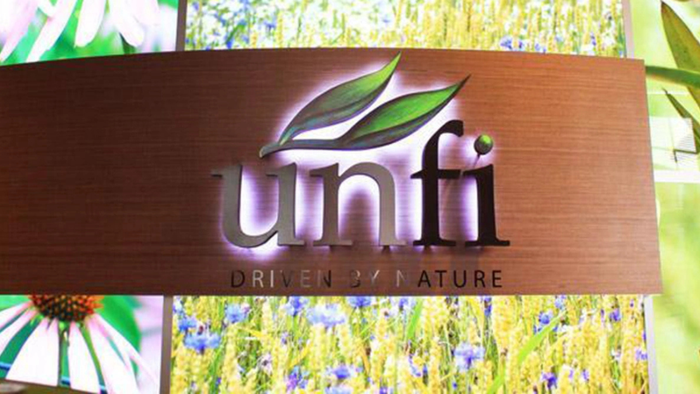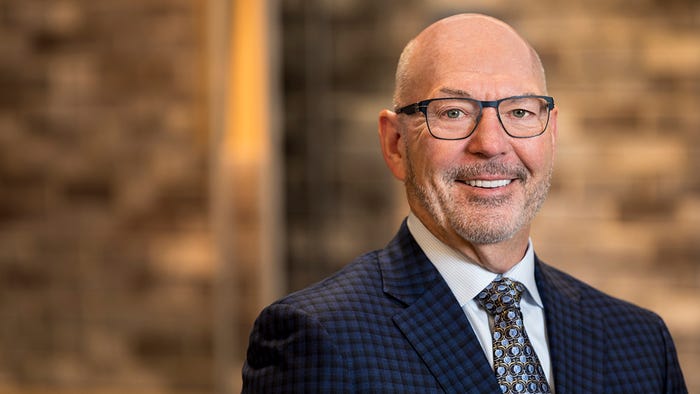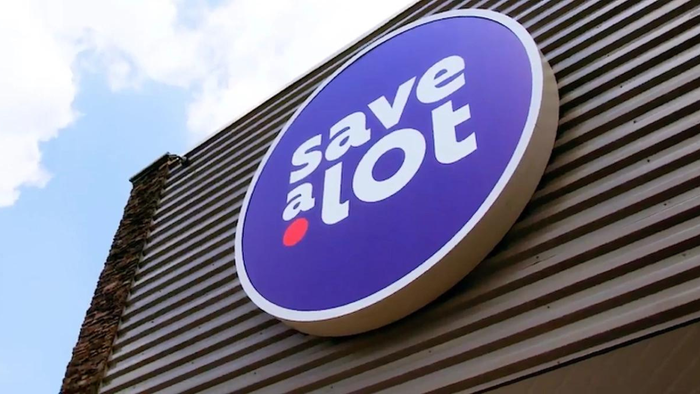Higher learning
January 1, 2018
Executive development programs can help grocery retailers groom their rising stars. By Craig Levitt For those who have ever worked at a supermarket, intertwined amongst teenage memories of school dances and driving lessons are countless hours spent stocking shelves or working the checkout at the local supermarket. It’s doubtful that more than a handful of those eager, bright-eyed youths expected to make a career in the grocery industry. However, with the industry’s longstanding tradition of promoting from within, often many of those young stock workers advanced through the retail ranks to positions of varying degrees of importance. As the retail world in general—and grocery industry specifically—continues to evolve and transform, retailers are challenged with finding and developing executives with exceptional leadership skills. While many retailers offer internal training programs to help their employees along the way, more and more are now offering their “rising stars” external training and education programs. To meet that demand, a number of colleges and universities across the country are offering everything from three and four day programs, to semester and multi-year programs in effort to help create future leaders in the food industry. “Schools have an increasing role in educating the next generation of leaders in the retail part of the food industry,” says professor Tom Gillpatrick, executive director of the Food Industry Leadership Center for the Portland State University Food Industry Management program, based in Portland, Ore. “There has been a long history of people coming up through the ranks, and that is still true. But the demands on leadership and the skill sets that are need are harder to get from somebody who has not had any exposure to things outside a particular organization.” One of the most visible food marketing schools in the nation is Saint Joseph’s University. Christine Hartmann, director of the Executive Master’s in Food Marketing program, says the Philadelphia-based university has a comprehensive executive food marketing program that attracts students from all across the food industry. Graduates of the program receive an MBA in food marketing or a master’s of science in food marketing. “Our executive program is a way to help people improve on the job,” says Hartmann. “Students come in with the attitude that they want to do better on the job and improve their career prospects within their company. They aren’t just doing this to get a new job.” Saint Joseph’s executive program is primarily a weekend program that can take up to six years for students to earn their degrees. There are, however, plenty of shorter programs that retailers can send employees. One is the semester-long Food Industry Management program at the University of Southern California Marshall School of Business. For retailers that send people to the program, they get back more than just an employee with 16 hours of college credit, says Bob Hermanns, director of food industry programs for the Los Angeles-based USC Marshall School of Business, Food Industry Management program. “Retailers get back a person who has experienced a transformational event in terms of their management style,” he says. “During the semester, students work through all the basic situations that they will likely be exposed to throughout their career.” One USC Food Industry Management graduate that did advance through the ranks is Jim Lee, president and COO of San Bernardino, Calif.-based Stater Bros. Lee, who grew up bagging groceries for the Ralphs Grocery Co., originally wanted to be a teacher. “Going through the program made a big change in my life,” says Lee. “Gaining the knowledge was one thing, but it definitely elevated my professionalism and I came away from the program inspired in two ways. I became energized by the opportunities I could foresee in the grocery industry and I felt I was better equipped for ultimately bigger and better jobs. There isn’t a week that goes by that I don’t use the skills I learned back then.” Retailers such as Stater Bros. look highly upon individuals that complete not only the USC course or similar programs. “People compete hard for the few positions available [in the USC program], says Lee. “There are a number of our management team that have gone through it. Several have been promoted and are well-positioned to be a part of our long-term succession plan.” Path to leadership According to Rod Hawkes, senior extension associate for the Ithaca, N.Y.-based Cornell University Food Industry Management Program, among the many participants in Cornell’s nine day Food Executive Program, sponsored by the Food Marketing Institute (FMI), include current and former presidents and CEOs of many of the large supermarket companies in the country. “It’s quite an interesting group,” says Hawkes. “We don’t publicize those names, but in many companies there is a long tradition of sending rising executives to that program. There are generations of people in some companies that have been through that program.” FMI also sponsors Portland State’s “Today’s Manager’s, Tomorrow’s Leaders” (TMTL) leadership development program. A lot of the TMTL program includes practical learning because while professor Gillpatrick believes education in the classroom is important, he says it is also important to see what is really happening in the industry. “I am a big believer in not letting school get in the way of education,” says Gillpartrick. “I view our program as a connection between what students learn in a business school environment and how those theories and tools are applied in a retail food environment.” Along with FMI, the National Grocers Association (NGA) has taken an active role in supporting college and university executive-level food programs. In 2004, with NGA’s support, the University Food Industry Coalition (UFIC) was formed. According to Dennis Degeneffe, research fellow for the St. Paul, Minn.-based University of Minnesota’s The Food Industry Center and UFIC chair, its mission is to provide thought leadership and educational programs for the food industry. The UFIC currently consists of 15 university programs that meet semi-annually to advance a collaborative agenda of industry focused academics and research. One of the things the coalition determined was that while there seems to be a decent amount of executive level programs focused on the food industry, there appears to be a need for more manager-level programs. “What we have been struggling with over the past several years is what a future managers program would look like,” says Glenn Richey, coalition member and associate professor of international marketing and supply chain management for the University of Alabama, located in Tuscaloosa. “What we wanted to do was give people a very intense session over a short period of time.” After meeting with several other coalition members, along with various food manufacturers and wholesalers, the four-day NGA Retail Manager Advancement Program (R-MAP) was created and held in March at the University of Alabama. Richey says the 15 attendees came from different areas of retail, such as store operations, marketing managers and meat mangers. He says topics covered included marketing and customer service strategy, accounting, finance and store operations, employee coaching and leadership, personality typing, customer behavior and expectations marketing communications and supplier and retailer negotiation. Manager-level programs One of the things not initially in the program was personality typing, says Richey. However based on input from NGA and the Alabama Grocers Association retail members, those principles were added. “The problem, and I spent 10 years in wholesale and retail, is that in order to get a retailer to implement training they have to separate the employee from the store,” says Richey. “Otherwise they end up stocking the shelves and doing the menial things, simply because the job has to get done.” Although the initial R-MAP conference was held in Alabama, Richey says ultimately the plan is to offer four or five scattered regionally throughout the country. He expects the next one to be held at Louisiana State University later this year or early next year. Following that, he says future times and locations depend on what professors from the different regions want to do. A look at some of the top college and university food management programs in the country. Saint Joseph’s University, Philadelphia According to Christine Hartmann, director, Executive Master’s in Food Marketing, the Department of Food Marketing in the Haub School of Business at Saint Joseph’s offers an internationally recognized food marketing degree program at both the graduate and undergraduate level. “The reasons students attend our program are threefold,” says Hartmann. “We are exclusively focused on the food industry, the flexibility of the program and the expertise and prestige our curriculum and faculty provide.” Candidates of the executive program, all of whom must have at least four years of food industry experience, earn an MBA in food marketing or a master’s of science in food marketing. “These are people that their organizations have targeted as leaders,” says Hartmann. One of the unique aspects of the food marketing department is that most of the faculty have worked full time in the food industry and have practical first-hand experience. The curriculum is also relevant and topical and relates directly to the food industry, according to school officials. According to Bob Higgins, executive director for the academy of food marketing, students in the undergraduate program are prepared for diverse careers, including advertising, brand management, market research and managerial positions in food retailing. Cornell University Food Industry Management Program, Ithaca, N.Y. Cornell’s Food Industry Management Program (FIMP) has been providing programs designed to prepare rising stars for senior executive responsibilities in the food industry for more than 40 years. Annual programs include the NGA Executive Leadership Program, NACS Executive Leadership Program and United Fresh Produce Executive Development Program. “The students enrolled in these programs have been identified as rising stars by their companies,” says Rod Hawkes, senior extension associate. While the NGA and NACS programs are filled with executives from the retail sector, the United Fresh program gets attendees from the entire supply chain. The Food Executive Program, which is in its 45th year, is co-sponsored by the Food Marketing Institute (FMI). Hawkes says the nine-day program is geared toward the same level of executive as the shorter programs, yet has a broader curriculum. Portland State University Food Industry Management Program, Portland, Ore. Portland State has an annual program it co-sponsors with FMI called Today’s Manager’s, Tomorrow’s Leaders, (TMTL). Professor Tom Gillpatrick, executive director, food industry leadership center, says the week-long leadership development program targets mid-level managers. “We tend to do teamwork-based projects, placing retailers and vendors together,” says Gillpatrick, noting that the curriculum is largely focused around personal and leadership development. In addition to the TMTL program, Portland State offers shorter programs and custom training for individual companies. University of Southern California-Marshall School of Business Food Industry Management Program, Los Angeles The Food Industry Management Program at USC is designed exclusively for high-potential individuals of proven ability, says Bob Hermanns, director of food industry programs. There is a semester-long spring program or a four-day executive program. The spring program is designed specifically for the food industry, emphasizing leadership, a rapidly changing business environment, global competition, strategic planning and analysis, financial management, new forms of competition, executive communication and technology. The four-day executive program is a condensed version of the semester-long program. Because of the growing popularity, Hermanns says this year a second four-day program is being added in the fall. University of Minnesota, The Food Industry Center, St. Paul, Minn. Located in the University of Minnesota’s Department of Applied Economics in the College of Food, Agricultural and Natural Resource Sciences on the St. Paul campus, The Food Industry Center offers graduate and undergraduate food marketing programs. Undergraduate students take classes in sales, retail management and food management and according to Jean Kinsey, professor of applied economics and director of The Food Industry Center, many students wind up working in category management-type roles. Michigan State Food Industry Management and Agribusiness Management, East Lansing, Mich. The Food Industry Management (FIM) program is located in the department of Agricultural, Food and Agribusiness Management. According to Larry Zink, industry relations/outreach coordinator, graduates of the program enter the food industry with an understanding of what happens throughout the entire supply chain. “Michigan State has a food science program and our students have the ability to take these classes,” says Zink. “Employees with an understanding of the food science part of the chain can be helpful to the retailer.” New York University Department of Nutrition and Food Studies, N.Y. In 2007, NYU introduced Food Systems, a new graduate concentration within the Food Studies program, which specifically focuses on issues related to food production. In addition to exploring food systems, tracing commodities and agricultural concerns from production through consumption, the program emphasizes development of critical thinking and research skills that help students analyze and solve problems. Illinois State University, Department of Agriculture, Normal, Ill. Though its Department of Agriculture, Illinois State offers an area of study called Food Industry Management where students take core business courses, accounting and personal management. Rob Rhykerd, professor and chair of the department, says the school emphasizes internships and has partnered with Kraft and Aldi to place students. Louisiana State University Food and Agribusiness Marketing, Baton Rouge, La. The undergraduate program at LSU is an agribusiness program encapsulating the entire food industry. R. Wes Harrison, professor of food marketing, says the 300 or so students enrolled in the four-year program take traditional marketing, finance, accounting and economics courses as well as classes specific to the food industry. Harrison says that while LSU does not currently have executive education programs tailored to the food industry, it hopes to launch one in the near future. Kansas State University Food Science Institute, Manhattan, Kan. The food science business program at Kansas State pairs food science and business courses together, says John Unruh, professor, animal science and industry and chair of the food sciences program. The undergraduate program is approved by the Institute of Food technologists (IFT). Student can choose between a Science option or the Food Business and Operations Management (Business) option. Oklahoma State University, Robert M. Kerr Food & Agricultural Products Center, Stillwater, Okla. Robert M. Kerr Food & Agricultural Products Center is a technical and research assistance center on campus. The center works directly with food manufacturers and processors as well as marketing students interested in a food career and obtains internships within various food companies, including retailers. Students get hands-on experience in areas such as meat cutting and grading, according to Jim Brooks, manager of business and marketing services.
About the Author
You May Also Like




